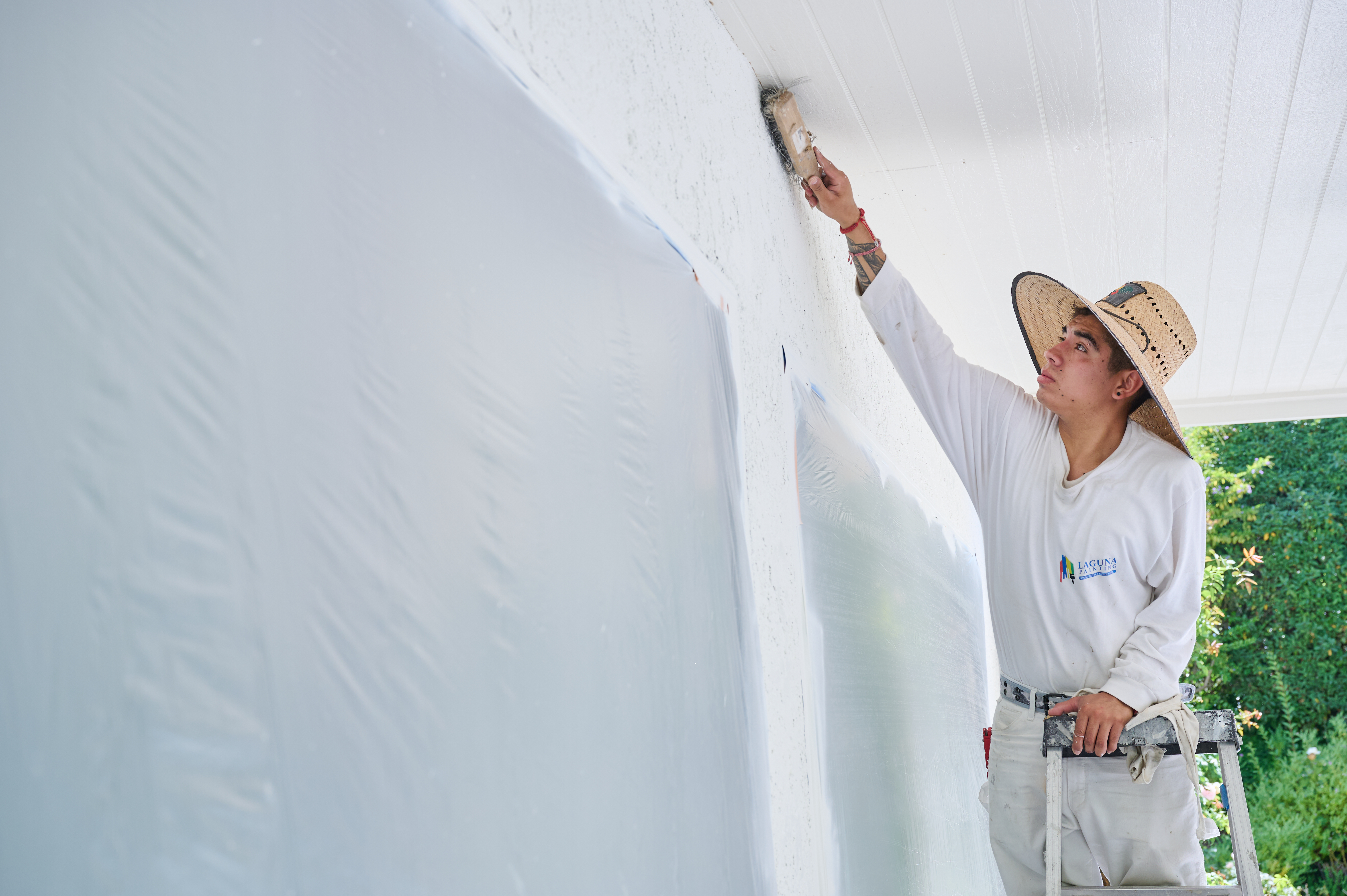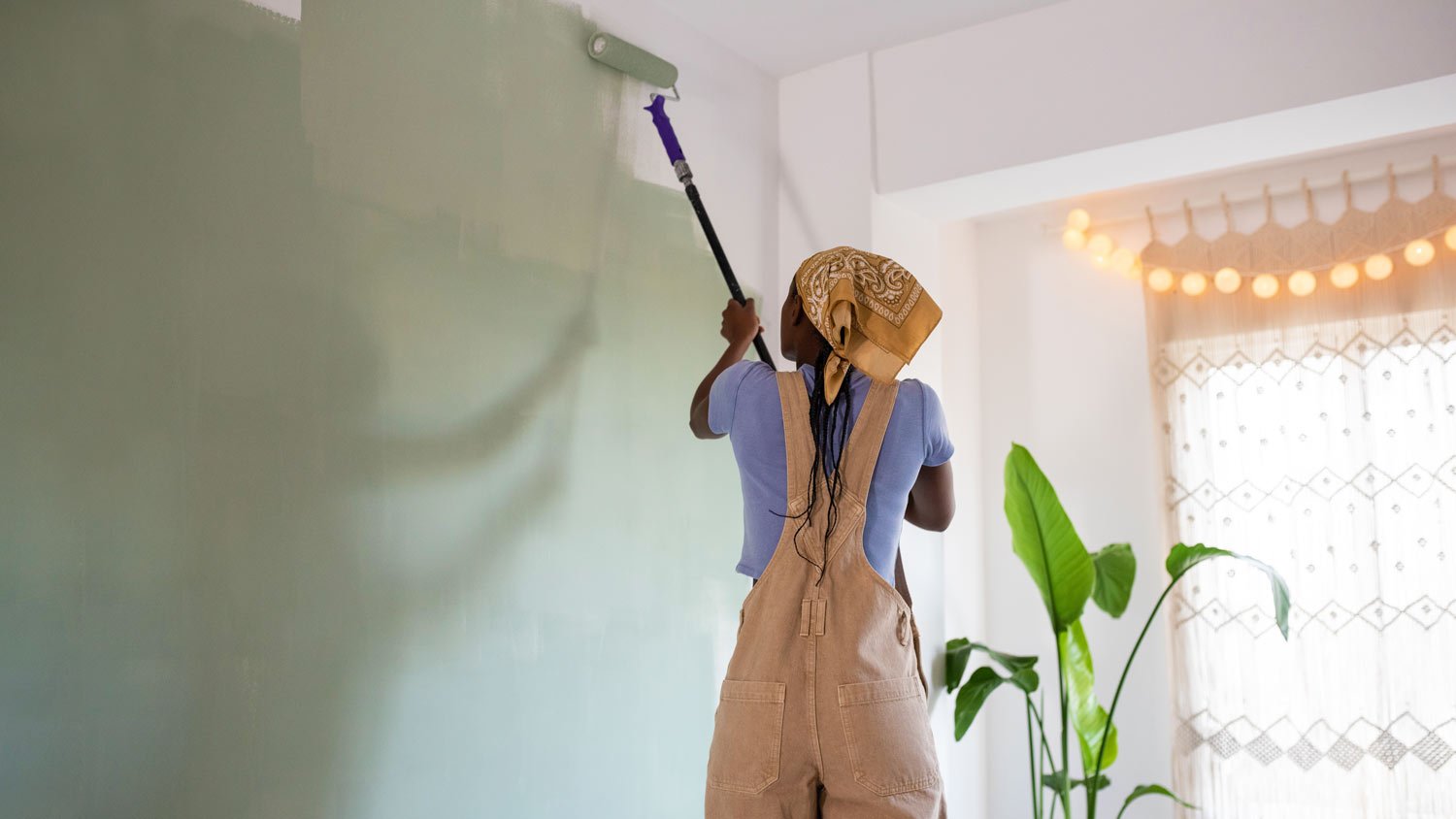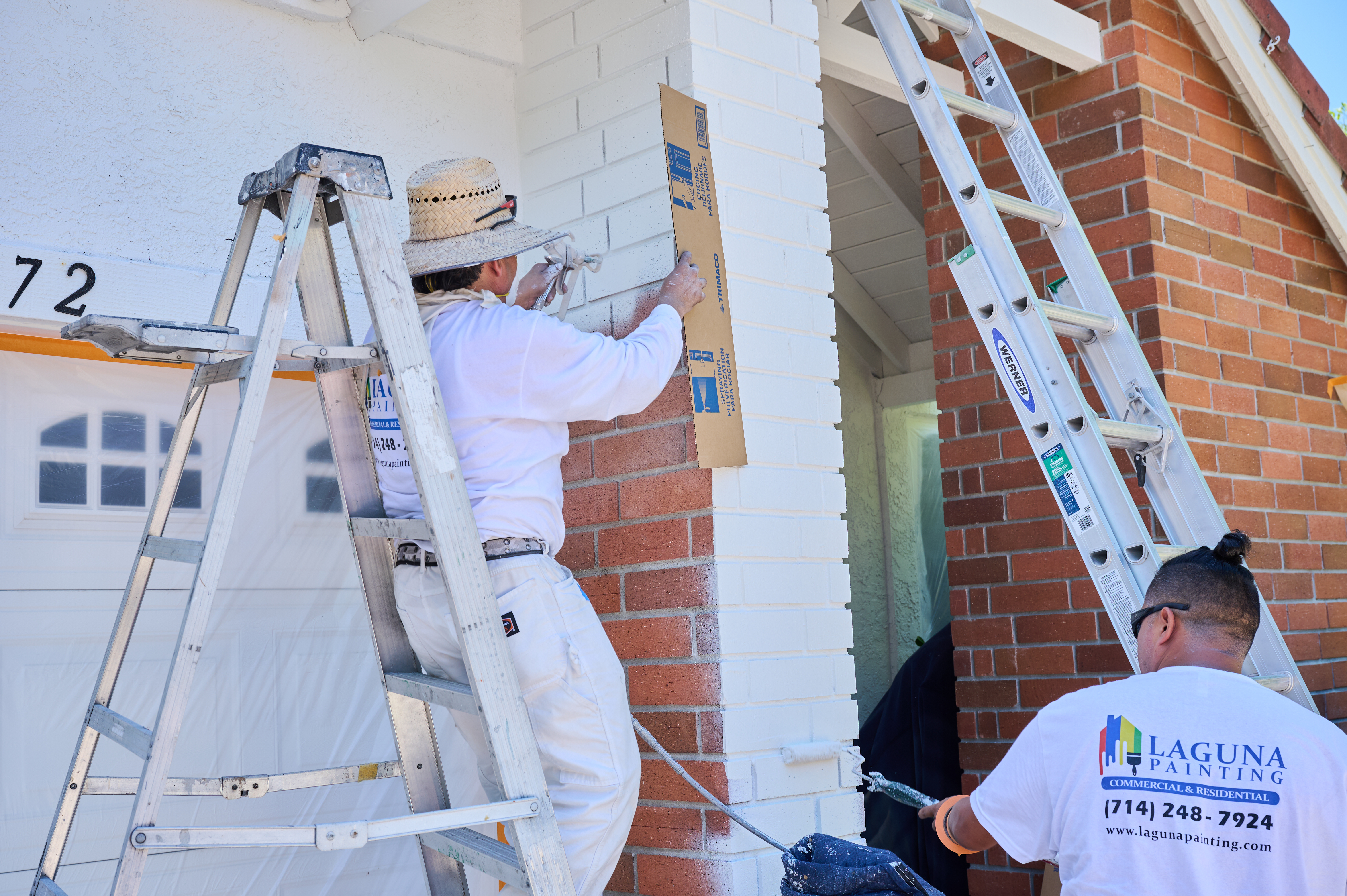
Powder coating can give your furniture, car, and other objects a new look. Learn what powder coating costs by object, size, and other factors with this guide.
Your new look is just a few quotes away


Getting a paint job estimate from a professional contractor is the first exciting step in giving your home a fresh look, and it’s crucial to pick the right people for the job. Here's a handy guide to help you find the perfect fit for your project and budget based on industry know-how, past projects, whether the contractor is licensed or registered, and, of course, ensuring they're fully insured.
Ask for recommendations from friends, family, or neighbors who have had positive experiences with painters in your area.
Online services like Angi can help you find a painting professional near you and assess the quality of each painter's service. Remember to take the time to read through the reviews and ratings left by other homeowners who have hired the painters you're considering. Look for patterns of positive feedback regarding professionalism, quality of work, communication, and adherence to timelines.

So, you've spent hours scouring through reviews, comparing ratings, and sifting through feedback from homeowners who've been there before. These next steps ensure that you not only find a contractor with glowing reviews but also one who is the perfect fit for your specific needs and requirements.
Proper planning is critical to getting accurate quotes. Remember, you will want at least three quotes to compare.
Assess your needs: Determine which areas of your home need painting, whether interior, exterior, or both. Note any specific requirements or preferences, including repairs, finishes, and surface area.
Set a budget: Research estimated costs for your local area online to determine the budget for your interior painting or exterior painting project. This information will help you communicate your expectations to the professionals and ensure you receive quotes within your financial constraints.
Schedule on-site visits: Meet the contractor and discuss your project requirements, preferences, and concerns. It will allow the painters to provide more accurate quotes based on their project assessment. Don't hesitate to ask questions about the quotes, the painting process, or their experience.
Compare quotes: Once the quotes roll in from multiple professionals, compare them carefully. Consider factors such as price, reputation, experience, and the level of detail provided in the quotes.
References: Ask the painter for references from past clients. A reputable painter should be able to provide you with a list of satisfied customers. Contact the references to inquire about the quality of work, professionalism, communication, and adherence to timelines.
License: Ask the painter for their license number and verify it with the appropriate licensing authority. Some states don't require licensing or registration to paint homes. When that is the case, be diligent with your additional research.
Insurance: Your home is most likely your most significant investment—never allow anyone uninsured to work in or on your property. Verify that the painter has liability insurance and workers' compensation insurance. Request a copy of their certificate and contact the insurance company to confirm coverage. Ensure that the insurance coverage is sufficient to protect you and your property in case of accidents or damages during the painting project.
Better Business Bureau (BBB): Visit the BBB website and search for the painter's business name. Check for any complaints or lawsuits filed against them. Also, look for accreditation, which can provide additional insights into the painter's reputation and reliability.
These questions give valuable insights into the painting professional's qualifications, process, and approach to customer service.
How long have you been in business?
How long do you estimate the project will take from start to finish?
Will you provide a detailed written estimate outlining the scope of work, materials, and costs?
Will you handle the cleanup after the project is complete?
Do you offer any guarantees or warranties on your work?
What is your policy for addressing any issues or touch-ups later?
Each step is crucial in finding the right pro for the job, from researching potential candidates to reviewing contracts and setting clear expectations.
Interviewing a painting professional before hiring them lets you gather important information, clarify expectations, and establish a solid foundation for a successful and collaborative working relationship.
Verify the painter's credentials, ensuring they are qualified to perform the work safely and effectively and are licensed and insured. You’ll get peace of mind by confirming the painter's reliability, trustworthiness, and adherence to industry standards. Additionally, a background check helps mitigate potential risks, such as hiring unlicensed contractors or individuals with a history of legal or safety issues, ultimately safeguarding the homeowner's property and investment.
Establishing clear agreements with the professional painter helps to establish a smooth and successful painting project from start to finish.
Scope of work: Clearly define the areas to paint, the type of paint and finishes you require, and any additional services such as surface preparation or repairs.
Timeline: An agreed-upon timetable for the project, from the start to the end dates, as well as any milestones or deadlines for specific phases of the work.
Cost and payment structure: The payment structure should include the down payment, progress payments at various project stages, and a final payment upon completion.
Materials and supplies: Typically, contractors supply all project equipment and materials. You will want this outlined in your agreement and included in your final cost.
Insurance and liability: The contract should state the contractor is liable and responsible for any damages or injuries that may occur during the project.
Cleanup and protection: The contract should clearly outline who protects furniture, floors, and other surfaces from paint splatter and damage and who is responsible for the cleanup and disposal of materials after the project.
Warranty or guarantee: Clarify the terms and conditions of the warranty, including any limitations or exclusions.
Changes and additional work: Outline how to handle any changes and updates to the original scope of work. If applicable, agree on how to document, approve, and bill additional expenses.
When a painter paints your home, keeping thorough records for reference and potential future needs is essential. Here's a list of records you should consider keeping:
Receipts and invoices
Documentation of hours
Paint specifications
Before and after photos
Contact information
Copy of insurance and license
Copies of any correspondence
Red flags can pop up throughout your project. By being vigilant and addressing any red flags promptly during the painting process, you can mitigate potential issues and ensure a positive outcome.
Poor communication: If the painter is unresponsive to calls, emails, or messages, or if there is a lack of clarity in communication about project details, timelines, or changes, it could indicate potential issues with reliability or professionalism.
Unprofessional behavior: Watch out for behavior such as arriving late to appointments, not respecting your property or belongings, or failing to adhere to agreed-upon safety protocols.
Low-quality work: If you notice uneven paint coverage, drips, streaks, or other imperfections in the finished work, it indicates subpar work to address.
Excessive delays: Unexpected delays in the project timeline, without valid reasons or clear communication from the painter, can cause concern. Delays may result from poor planning, scheduling conflicts, or underestimated project complexity.
Overbilling or hidden costs: Be wary of painters who attempt to charge more than the agreed-upon price or add unexpected costs to the final invoice without prior approval. Transparency in billing and adherence to the agreed-upon payment structure is essential.
First and foremost, review the work carefully and ensure you're satisfied with the results before making the final payment. If everything meets your expectations, promptly providing the agreed-upon payment is customary.
Consider leaving a review for the painter on Angi, detailing your experience and satisfaction with their services. Positive reviews can help other homeowners make informed decisions and support the painter's business. If you were particularly pleased with the painter's work, professionalism, and communication throughout the project, consider agreeing to be a reference for them in the future.
From average costs to expert advice, get all the answers you need to get your job done.

Powder coating can give your furniture, car, and other objects a new look. Learn what powder coating costs by object, size, and other factors with this guide.

The cost to paint a house's exterior depends on its size, siding type, and height. The finish and the home's exterior condition also play a role.

Painting a brick house typically costs between $1.40 and $4.20 per square foot. Your total cost will depend on where you live and the finish you use.

Discover the best time to paint a garage floor. Learn about weather, temperature, and other factors to ensure the best results.

Discover how to whitewash brick to enjoy its timeless charm and naturally protective properties.

The best time to stain a deck is when it’s dry but not too sunny. How often you restain a deck depends on climate and wood type, but every two to three years is normal.